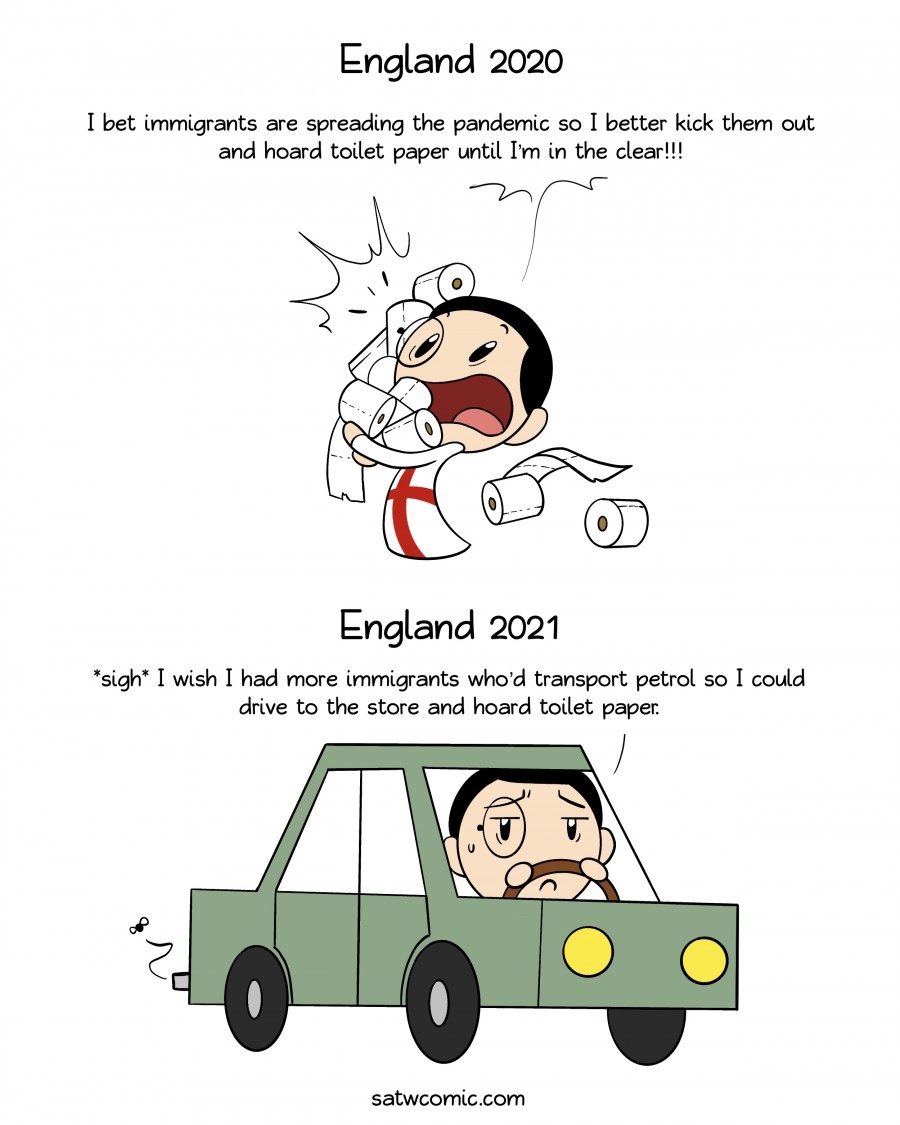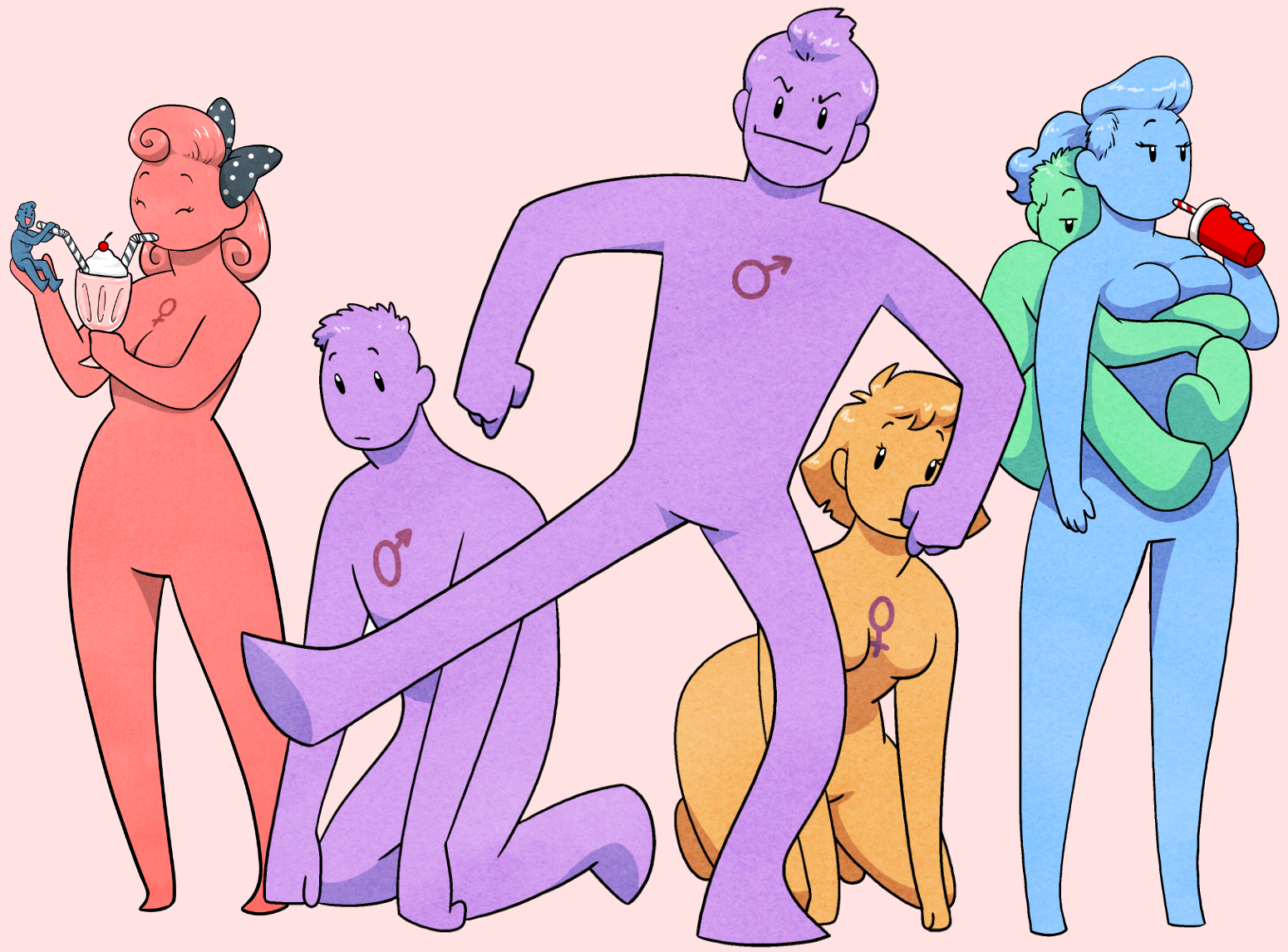4 years ago #9862934
4
0
I see that the comment field here is a political battleground. So please, have peace!
4 years ago #9862940
3
0
Best story I read was the cars that formed a convoy following a tanker, and were most disgruntled when it turned out to be delivering mortar to a building site.
4 years ago #9862862
3
0
I literally remember someone saying they were eager for Brexit so as to get all the foreign lorry drivers off the road.
I said Brexit wasn't going to remove foreign lorry drivers.
Seems we were both wrong..
I said Brexit wasn't going to remove foreign lorry drivers.
Seems we were both wrong..
4 years ago #9863668
2
0
Ooh I am so excited for the next comic!
:happy: :wave: :atroll:
And I can get enough of the emojis...
:happy: :wave: :atroll:
And I can get enough of the emojis...
4 years ago #9862544
2
0
How would they know that taking an important part of infrastructure and logistics would affect infrastructure and logistics? :P
4 years ago #9862529
2
0
'@BinBin' Every kind of racism is wrong, so damn weird and just the most disgusting thing ever.
' @Bananajewell' I know! It is a miracle!
' @Bananajewell' I know! It is a miracle!
4 years ago #9862480
2
0
Brits voting for Brexit so they can keep all the toilet paper for themselves is my new headcanon.
Add comment: Please Sign in or create an accout to comment.




 Support the comic on
Support the comic on 

















The problem is that, once these things start, you have two (rational) choices - join in (if you're actually or very probably going to need whatever it is), or ride it out and take your chance on going without. Petrol was an insidious case; as soon as the news came out that BP were having to shut a few of their forecourts because they couldn't get fuel to them, I knew what the effect would likely be (and when I heard on the news that the government was saying that there was plenty of fuel, and people "didn't need to panic buy", I was stone-cold certain - telling people not to panic buy is THE guaranteed way to get them to do so). Probably, quite a few other people did as well. So - lots of people took the first opportunity to fill up in anticipation of a shortage. Causing a shortage. (I had half a tank of fuel and no definite big journeys to do; I didn't rush to fill up, and limited myself to short trips as much as I could. But my wife has an elderly parent who lives a couple of hundred miles away, and we've had to go over there on short notice a couple of times, so when I passed a station that seemed to have business-as-usual levels of customers, I topped up, "just in case". Doubtless adding to the pressure in my own, small way.)
"Just in time" is a great concept if your supply chain is rock-solid, but a lousy one if it's not, basically.